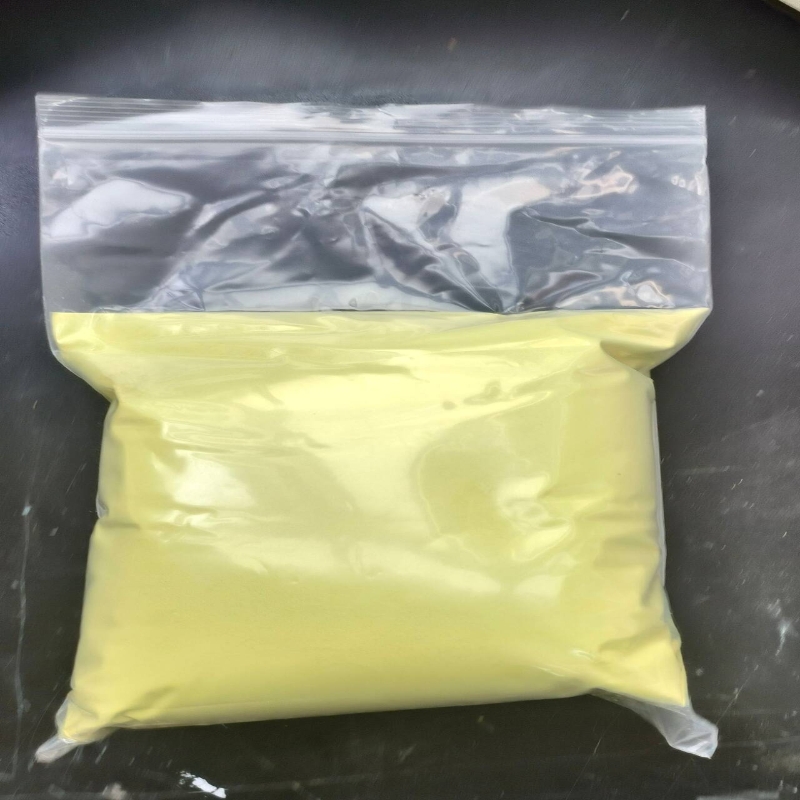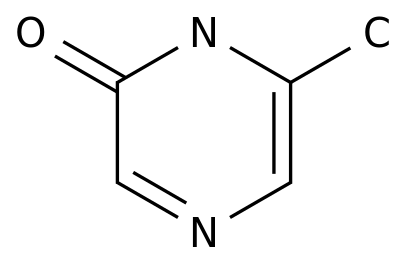What's Sanofi's new style of play after the change of coach, the layoff, the pipeline?
-
Last Update: 2021-03-01
-
Source: Internet
-
Author: User
Search more information of high quality chemicals, good prices and reliable suppliers, visit
www.echemi.com
into the final month of 2019, Sanofi continued to move, mergers and acquisitions, strategic adjustments two new news. It's not hard to guess that this is also a clear signal that Sanofi's new chief executive, Paul Han, has "deliberately" considered the direction of Sanofi's research and development in the context of a global strategic adjustment.On December 9, 2019, Sanofi Global announced that it would stop developing new drugs for diabetes and cardiovascular disease, while Sanofi made a major strategic adjustment to focus on changes in the company's product structure and refocus on three business units: Medicines (immunity, rare diseases, blood, nerves, tumors), vaccines, generics (diabetes, cardiovascular and mature medicines), and consumer health will become an independent business unit with integrated research and development and production, in addition to which Sanofi will take significant steps to reduce costs.Almost at the same time, Sanofi announced that it had agreed to buy Synthorx, an immuno-oncology biotechnology company, for $2.5 billion. John Reed, Sanofi's global head of research and development, said: "Synthorx's new discovery platform has produced a molecule that has the potential to form the basis for the next generation of immuno-tumor combination therapy. THOR-707 can be combined with effect T cells and natural killer cells in the human body to treat cancer with our current cancer drugs and emerging immunomodulant pipelines. Sanofi , has announced that it will stop developing new drugs for diabetes and cardiovascular disease, which is actually a harbinger.Sanofi has been in the field of diabetes and cardiovascular disease for decades, having produced the drug King Polvi and the heavy insulin Lantus (when it came). Sanofi came in third with $6.56 billion in revenue in 2017, according to Igahub, a pharmaceutical consulting firm. But in 2018, that part of the business has underperformed.Sanofi's 2018 financial results show net sales of EUR 34,463 million in 2018, up 2.5% from 2017. Sales of the Rare Diseases business unit (Sanofi Jianzan) increased by 30.8% to EUR 7.226 billion by global business unit, and the vaccine business unit (Sanofi Pasteur) increased by EUR 5.118 billion 2.4%; Consumer Health (Health Pharmaceuticals) sales were 3.0 percent higher at 4.66 billion euros, while diabetes and cardiovascular (DCV) was down 13.8 percent year-on-year at 4.511 billion euros.The decline in sales quickly led to job cuts, with Sanofi planning to cut nearly 500 jobs in its research and development operations in Germany and France in June, reorganise its cardiovascular research program, narrow the scope of its diabetes efforts and shift its focus to areas such as cancer, immunology and rare diseases. In January, Sanofi's U.S. diabetes and cardiovascular sales team cut 400 jobs, largely because of poor sales of insulin Lantus.There is no denying that Lantus is facing a patent cliff crisis, with its successors Afrezza, Toujeo and Soliqua all underperforming. With the introduction of the same type of products by peers such as Lilly, the pressure on Sanofi is increasing. Han Paul himself said, "We are proud of our past, but we have to make tough choices." Itnote that Sanofi will not only discontinue research and development in the field of diabetes and cardiovascular disease, but also revise its collaboration with Regeneron on il-6 subject inhibitors Kevzara (sarilumab) and PCSK9 inhibitor Praluent (alirocumab).Praluent, a human monoclonal IgG1kappa antibody developed by Sanofi and Regenerative, was approved by the FDA in July 2015 for the treatment of adult hemolysis familial high cholesterol blood HeFH and atherosclerosis cardiovascular disease, with full-year 2018 sales of 261 million euros, but Praluent failed to exceed previous expectations in the first quarter of 2019 and sales growth ultimately failed to offset price pressures. In addition, the drug faces a battle with evolocumab.Kevzara, another new anti-inflammatory drug, was developed in collaboration with the two companies and was approved by the FDA in May 2017. Sales for the full year 2018 were EUR 83 million, of which EUR 64 million was generated in the US market and EUR 14 million in the European market. Sales in emerging markets are zero.It is not difficult to see that Sanofi core product competition is becoming increasingly fierce, and by the impact of generic drugs, the new product market volume is not obvious, but also become the background of this strategic adjustment. Sanofi, meanwhile, said it would then focus resources on cancer immunotherapy, vaccines and six key projects in the drug pipeline, represented by Dupilumab.It is worth mentioning that on March 27, 2017, the FDA approved Dupilumab injections to treat adult patients with moderate to severe eczema (atopic dermatitis), and in October 2018 Dupixent expanded its adaptive disorder, which was approved by the U.S. FDA to enter the biopharmaceutical market for asthma patients. This year, the FDA approved Dupilumab to treat chronic sinusitis in adults.Sales are also growing as The Dupixent's range of adaptive disorders expands. Dupixent's sales in 2017 were EUR 219 million, while sales in 2018 were EUR 788 million, up 260% YoY, and sales of this product grew rapidly in the first quarter of 2019, reaching US$303 million in the US alone.Now Sanofi is back in the business of buying Synthorx or will drive its growth in cancer treatment.At Sanofi's Capital Markets Day event on December 11th, Han Paul also laid out Sanofi's plans for the next six years: from 2020 to 2022, it will focus on screening the pipeline, focusing on the development of potential "first-in-class" or "best-in-class" products, and after 2023, it is expected to introduce innovative products and increase research and development productivity.In the Chinese market, Sanofi has chosen to reposition itself for a new phase of growth and will continue to do its best to drive sales growth in existing and diabetic products.It is worth noting that Sanofi China has made intensive new adjustments to its business line prior to this global strategic adjustment. In October, Sanofi China further integrated the Central Nervous System Division and the Internal Medicine Division into integrated specialties (North), integrated specialties (South) and psychiatric teams, integrated into a new organizational structure, and in November split the Diabetes Division into two teams, oral medicine and needles. Earlier, Sanofi China President He Enxuan in an interview with E drug managers, said Sanofi will be more actively involved in the national collection, accelerate the market "when the second generation" Toujeo, cardiovascular field drug Bolida Praluent, as well as the treatment of moderate-severe specialty dermatitis drug Dupixent and other innovative drugs, reduce the impact of national collection, quickly adapt to the rapid changes in the Chinese market. In China, Sanofi plans to launch the heavy drug Dupixent in the fourth quarter of next year to treat patients with special dermatitis, according to Sanofi's new research and development strategy. It also plans to launch more than 25 products over the next six years that primarily treat rare diseases and cancers. (E drug manager)
This article is an English version of an article which is originally in the Chinese language on echemi.com and is provided for information purposes only.
This website makes no representation or warranty of any kind, either expressed or implied, as to the accuracy, completeness ownership or reliability of
the article or any translations thereof. If you have any concerns or complaints relating to the article, please send an email, providing a detailed
description of the concern or complaint, to
service@echemi.com. A staff member will contact you within 5 working days. Once verified, infringing content
will be removed immediately.




![2-(Hydroxymethyl)benzo[b]thiophene](https://file.echemi.com/fileManage/upload/cas/593/e79a972f-b55d-4dc1-9113-841c417e0a89.png)


